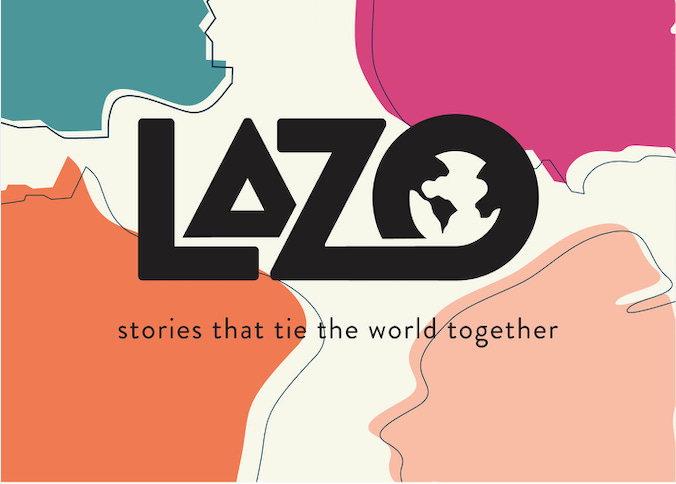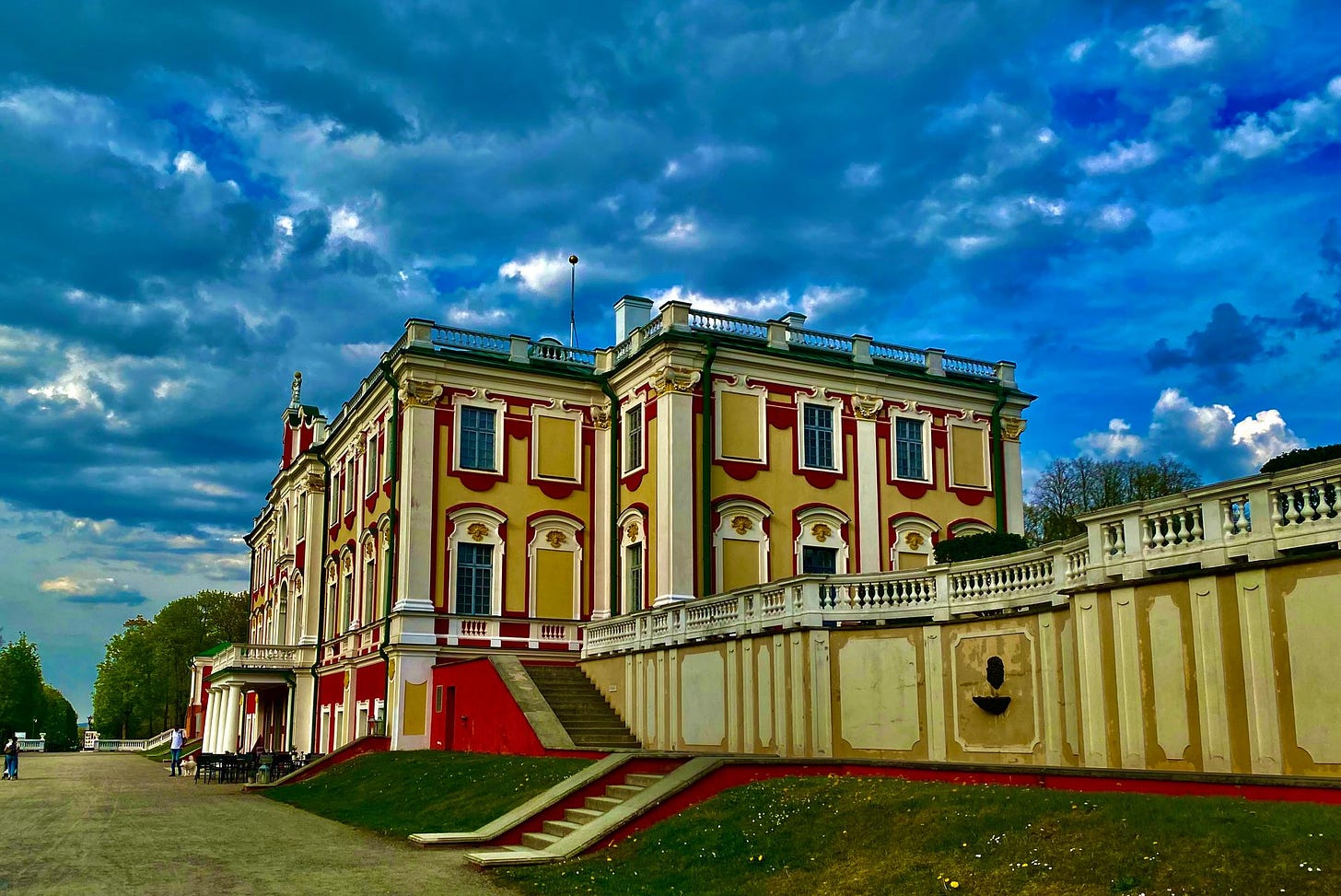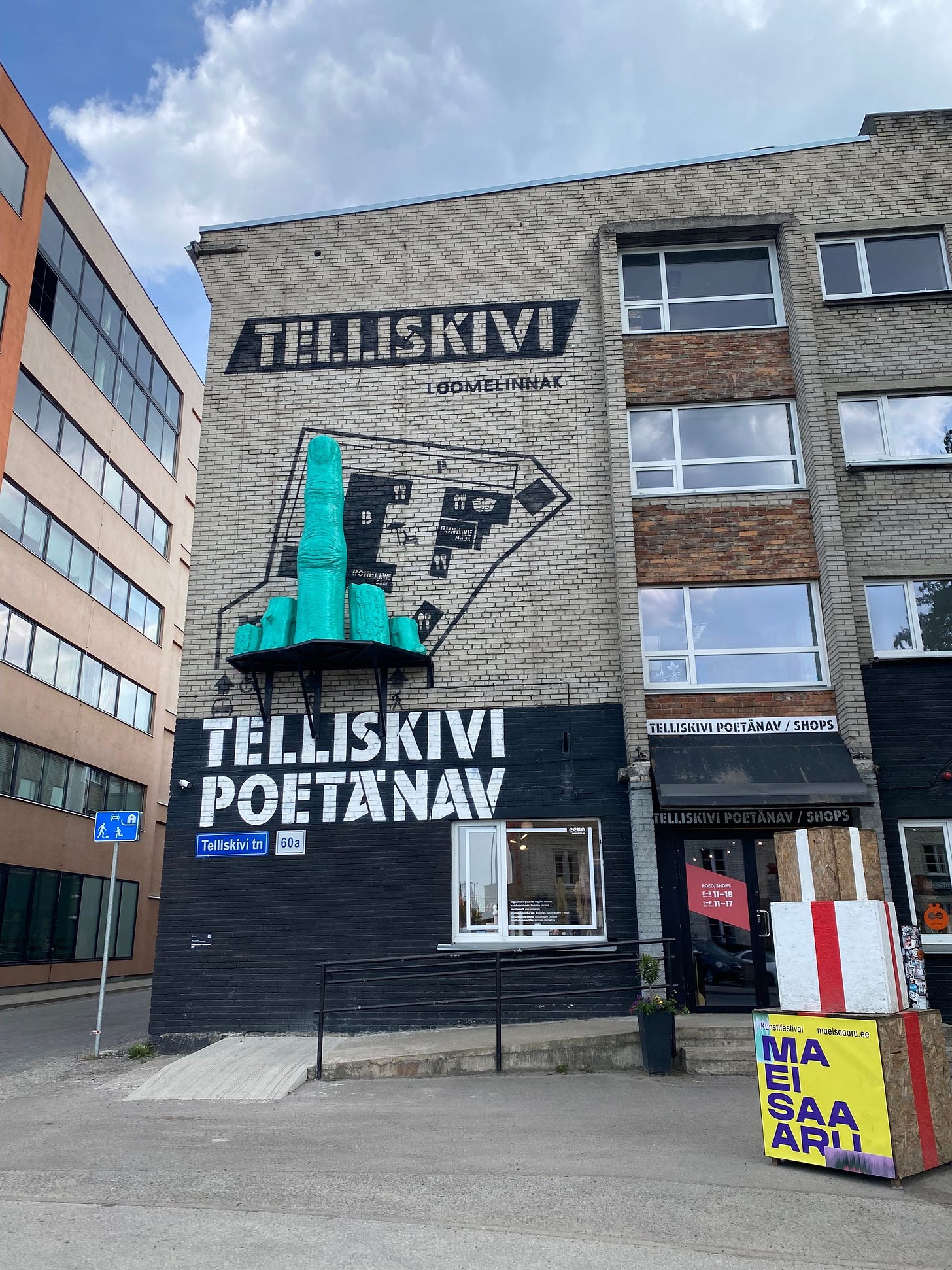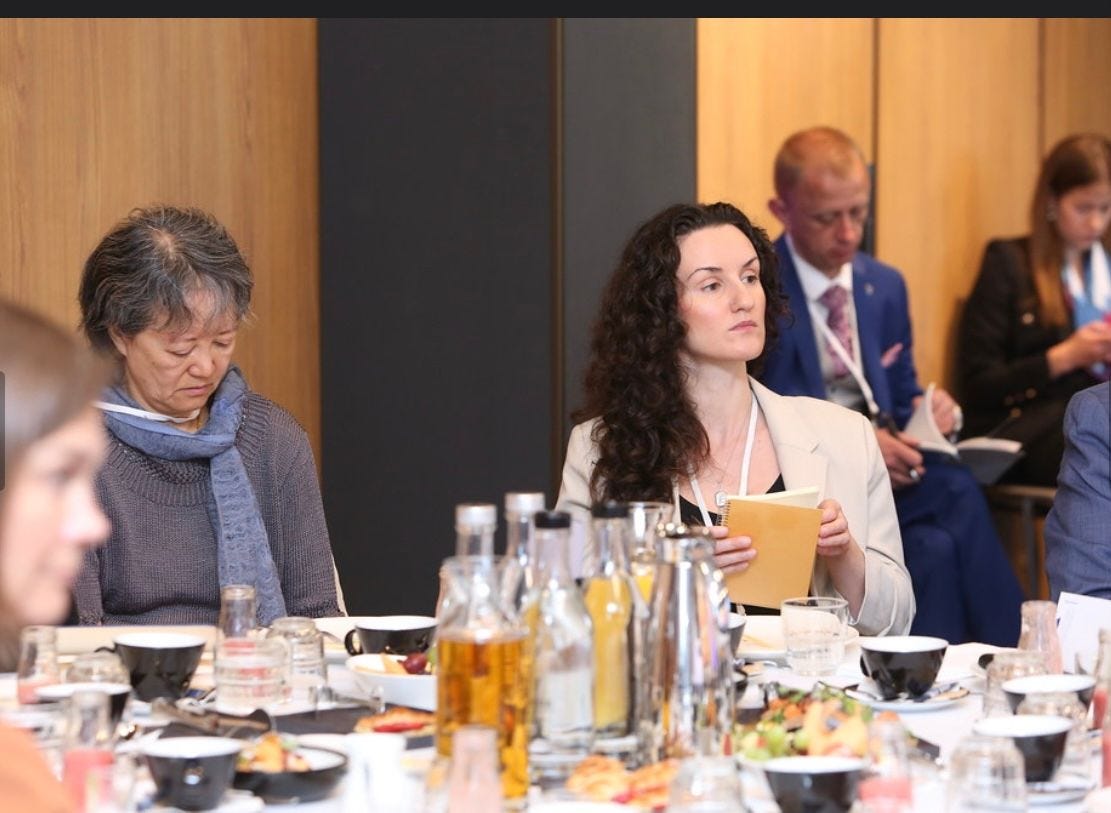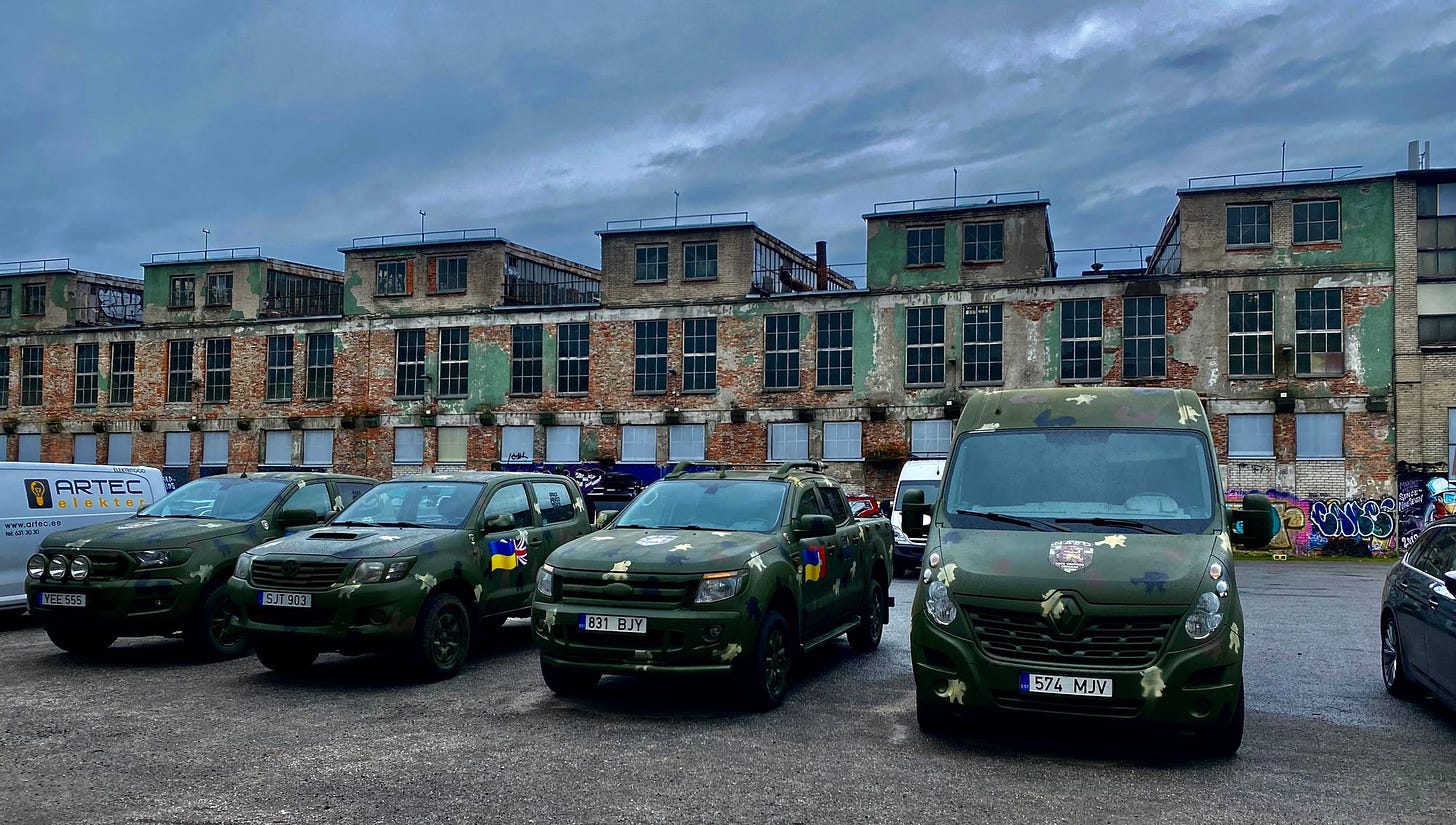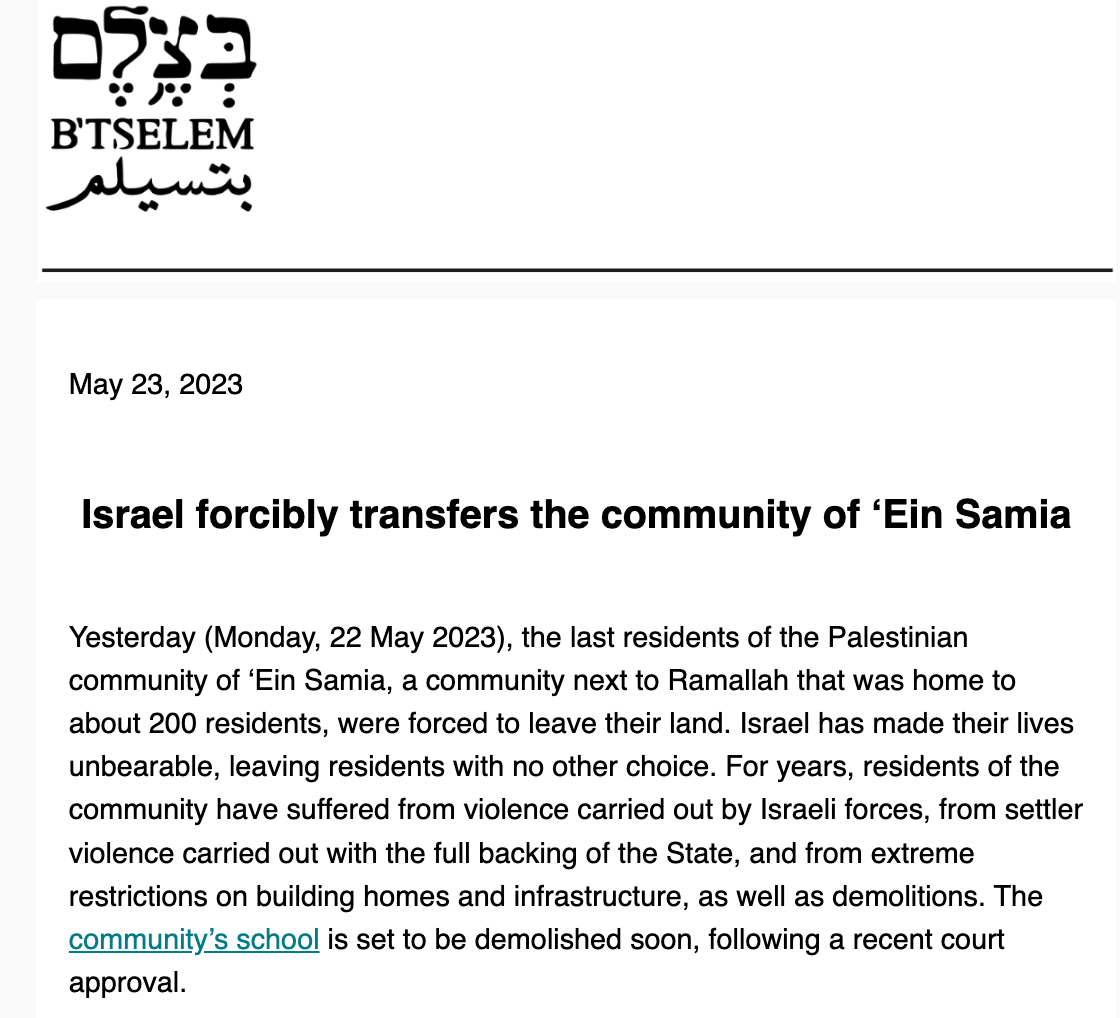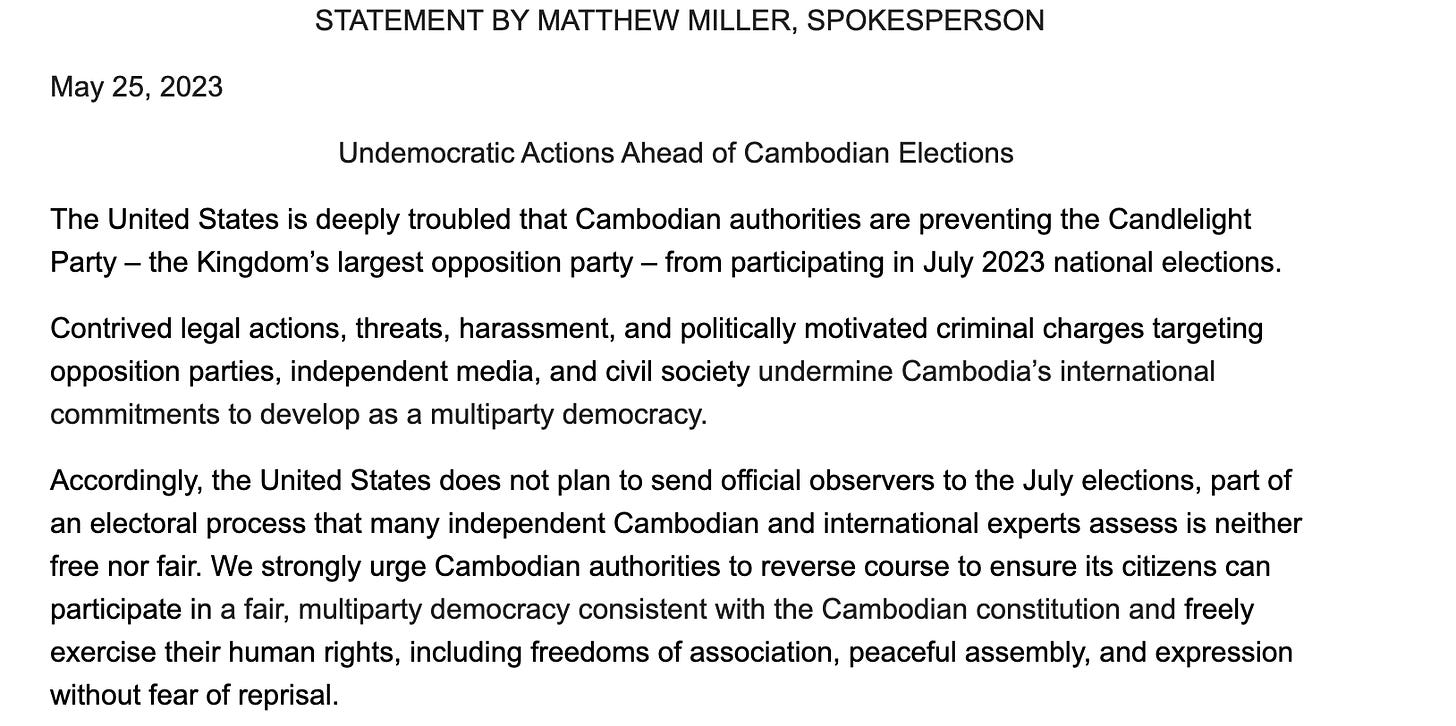A week in Estonia.
It's been a few weeks since I dropped in here to write, and I have to admit....I missed this newsletter! It helps me process my thoughts about what's happening in the world and offers a nice opportunity to connect with all of you.
I was in Estonia over the last week. It was a bit of a whirlwind trip, with days of intense back-to-back reporting and time spent at the Lennart Meri security conference. I flew via Iceland and London but unfortunately didn't have time to stop and see people in those places (shoutout to Play Airlines, which now has low-cost flights from Baltimore to Europe).
Estonia was a little different than I expected. It was much more Scandinavian than the other Baltic states. The country had its own Viking Age and was once part of the Danish and Swedish empires. It was also almost entirely under Swedish rule from the mid-1500s until the 1700s.
Estonians themselves are Finno-Ugric people, like the Finns, and their language is also Finno-Ugric, which means it would be extremely difficult to learn (this is only sort of a joke! If you've learned a Finno-Ugric language before, hat tip! You're amazing. I wish I had your skills).
Despite the nearly 500 years that have gone by and the Soviet occupation from 1940 to 1991 (although technically, Soviet forces remained in the country until 1994, led by a young Valery Gerasimov), the Swedish influence seems quite well-entrenched. The Estonians I met embraced the typical Nordic minimalism. My Airbnb was a beautiful, sunlit apartment with almost nothing in it. I was very impressed!
If you're ever in Tallinn, make sure to pack well because everyone is impossibly glamorous, and it's easy to feel like a tiny, swarthy, underdressed Roman compared to all of the tall, blonde, hip people on the street. OK, maybe that's just me. Some of the other international reporters I met said the Estonian fashion sense gave them flashbacks to the 1980s, as if the country were frozen in time. They weren't as impressed as I was. Perhaps we're all right. The 80s are back, after all, and I'm here for the fashion flashbacks as long as you're not pushing the 1990s baby-ts and brown lipstick. In other words, I thought everyone looked great.
If you want to emulate some Estonian styles, check out the shops in the Solaris Shopping Center or the Telliskivi Creative City. The items are expensive (another way Estonia resembles Scandinavia: high-ish prices) but unique and charming. Telliskivi was the best neighborhood in Tallinn, IMHO. It's also the neighborhood with the best variety of vegetarian restaurants.
I'd also recommend a walk in Kadriog, where all the diplomats live, if only for the architecture. People told me that Tallinn was so small that I could see it all in a day, and that turned out to be true. Despite the heavy workload, I think I saw everything except the museums. I will have to go back for those.
Estonia's proximity to Russia is also evident, and not only because of the politics or the fact that the war in Ukraine dominates daily conversations. I heard more Russian spoken on the streets than I expected, and the local cuisine was heavily Russian-influenced. Of course, I knew that ethnic Russians make up around 24% of the population. But I wrongly assumed many people would stop speaking Russian in public after the start of the war, especially given Estonia's tense relations with its larger neighbor. That was not at all the case. Estonia felt practically bilingual, and maybe even trilingual, given how well many people spoke English.
If you want to hear more about Estonia and my trip in particular, I recorded a podcast about it for National Journal. You can find the link in the section below.
What I'm writing:
• Fifteen months into Russia’s war against its smaller neighbor Ukraine, a chasm is widening between the United States and NATO’s Eastern flank as allies debate the best way to help Kyiv win the war. This report from Estonia is unlocked and free to read.
Foreign-policy reporter @CrisLeeMaza breaks down the Russia-Ukraine conflict from the Baltic country's perspective.
Listen on Spotify here:https://t.co/cCobOpUYFe pic.twitter.com/G4wMzvlUvI— National Journal (@nationaljournal) May 22, 2023
• MORE FROM ESTONIA: Officials in the Baltics are already debating about the upcoming NATO summit in Vilnius and what that means for Ukraine's future membership. This story is unlocked and free to read.
What I'm reading:
The operation conducted by the Freedom of Russia Legion and the Russian Volunteer Corps aims "to liberate these territories from Putin's regime and push back the enemy to create a certain security zone for protecting Ukrainian civilians," Andrii Yusov said.
— The Kyiv Independent (@KyivIndependent) May 22, 2023
An organization calling themselves "Freedom of Russia Legion" published a video on their Telegram channel.
"The time has come to put an end to the Kremlin dictatorship! Be brave and have no fear because we are coming home! Russia will be free!" They said after criticizing… pic.twitter.com/9a7p31em82— Anton Gerashchenko (@Gerashchenko_en) May 22, 2023
• The New York Times tells the story of South Korea's so-called "comfort women," women and girls forced into prostitution during World War II and its aftermath.
• The podcast Gaslit Nation has a new book coming out. It's called Dictatorship: It's easier than you think!
• Ukrainians woke up on Monday morning to the unexpected news of an unfolding military operation across the border in Russia’s Belgorod Oblast. The incursion was reportedly the work of two Ukraine-based Russian opposition militias, the Free Russia Legion and the Russian Volunteer Corps, who claimed the attack marked the start of a campaign to “liberate Russia.” The Atlantic Council explains what's going on.
• The governor of Russia’s Belgorod region, Vyacheslav Gladkov, claimed that Ukrainian military saboteurs launched an attack across the border, wounding eight people in a small town, the Associated Press reports. Officials in Kyiv denied any link with the group and blamed the fighting on a revolt by disgruntled Russians against the Kremlin.
• The Far-right militias who stormed Belgorod this week used U.S.-made tactical vehicles in the attack, raising questions over Kyiv’s support for the Ukraine-based Russian extremist groups, the Financial Times reports. "Ukraine has denied direct involvement in the raid on Monday, but one military official acknowledged 'co-operating' with the nationalist groups, who entered Russian territory to 'liberate' a village," the story reads.
• A cross-border attack on the Russian Belgorod region by anti-Kremlin fighters aligned with Ukraine stretched into a second day, as an explosion at a defense factory and skirmishes at a border crossing were reported, the New York Times reports. Russia had claimed to have killed the militants.
• The head of the Russian paramilitary group, Russian Volunteer Corps (RDK), which said it was behind a cross-border raid into Russia from Ukraine, vowed more incursions, the BBC reports.
• Ukraine struck the city of Krasnodar and the Rostov region in southern Russia with a rocket and a drone, Reuters reports, citing Russian officials.
• Yevgeniy Prigozhin, chief of the Russian paramilitary organization Wagner Group, warned that Moscow’s brutal war could plunge Russia into revolution unless its detached wealthy elite committed to the conflict, the Washington Post reports.
• Russian forces have undertaken a significant build-up of trenches and other fortifications in southern Ukraine, hundreds of satellite images revealed. The build-up is a response to the looming Ukrainian counter-offensive. The BBC has the story.
• The defense ministers of Russia and Belarus signed a document on the deployment of Russian tactical nuclear weapons in Belarus, Reuters reports.
• Dissident blogger Roman Protasevich, who was detained in Belarus after his flight was forced to land in Minsk in what was widely described as a hijacking, received a presidential pardon and looks set to escape close to a decade behind bars, Politico Europe reports.
• The Russian paramilitary organization Wagner group is believed to have been involved in the extrajudicial killing of more than 500 people, according to a human rights fact-finding mission report conducted over several months by United Nations staff in Mali. The Guardian has a write-up.
• A massive political scandal over politicians’ expenses has gripped Lithuania as the country gears up to host the NATO summit in July. Lithuania's ruling party is now seeking snap elections and says the government may resign, Reuters reports.
• The first-ever NAFO Summit — that’s the North Atlantic Fellas Organization of Russian propaganda fighters — is set for July 8-9 in the Lithuanian capital.
• In Tbilisi, Georgian Airways became the first national airline to announce direct flights to Moscow. Protesters gathered for the first plane landing from Russia, leading police to cordon off the airport. The next day, it was reported that Ekaterina Lavrova, a daughter of Russia’s Foreign Minister Sergey Lavrov, was staying at a hotel in Georgia’s Kakheti province. The banned Russian newspaper Novaya Gazeta's weekly newsletter for Eurpe has the write up.
• A coalition of Bulgarian parties agreed to form a government led by two rotating prime ministers — one of whom will be former European Commissioner for Innovation Mariya Gabriel, Politico Europe reports.
• As Serbs in northern Kosovo clashed with police escorting disputed new Albanian mayors into their municipal offices, the U.S. laid the blame squarely at the feet of the Kosovo authorities, Balkan Insight reports. The U.S. embassy criticised the Kosovo authorities for using force to get the disputed mayors into their municipal buildings.
• Greece’s ruling conservative party won a landslide victory in an election last weekend with about 45 percent of the votes, Politico Europe reports. "The New Democracy party of Prime Minister Kyriakos Mitsotakis managed to gain a double-digit lead over its main rival, the left-wing Syriza party, and was missing only a few seats for a majority even with the new proportional representation system," they write.
• The European Union asked Greece to investigate footage of the country’s Coast Guard abandoning migrants in the Aegean Sea last month, the New York Times reports.
• Turkish incumbent Recep Tayyip Erdogan will likely win reelection on Sunday based on polling results and an endorsement from the ultra-nationalist candidate, Sinan Ogan, the BBC reports.
• Tens of thousands joined protests across Israel against Prime Minister Benjamin Netanyahu’s contested judicial overhaul, Reuters reports.
• Iran removed its top national security official, Ali Shamkhani, after he came under scrutiny over his close ties with the high-ranking British spy, Alireza Akbari, the New York Times reports.
• Colombian President Gustavo Petro suspended a ceasefire with a dissident Farc rebel group, making Petro’s hope of achieving “total peace” less likely, the BBC reports. The suspension comes after the rebels killed four indigenous teenagers.
• The Intercept has a report on Henry Kissinger's role in hundreds of previously unreported deaths in Cambodia.
• A U.S. diplomatic offensive to counter China’s growing clout in the Pacific Islands appears to be paying dividends, with three agreements sealed within 48 hours. The agreements with Papua New Guinea, Palau, and Micronesia underscore that the region still heavily leans on the U.S., Axios reports.
• Federal prosecutors investigating former President Donald Trump’s handling of classified documents issued a subpoena for information about Trump’s business dealings in foreign countries, the New York Times reports. The subpoena seeks details on the Trump Organization’s real estate licensing and development dealings in seven countries: China, France, Turkey, Saudi Arabia, Kuwait, the United Arab Emirates, and Oman.
• Governor Ron DeSantis had close ties to the now-convicted Republican donor Lev Parnas during his 2018 race, Reuters reports.
Interesting statements:
You can write to me for any reason: c.maza@protonmail.com
As always, if you can support this newsletter by upgrading to become a paid subscriber, that would be much appreciated. I love writing this, but it also takes time. Here's the link to copy and paste into your browser to support this project: https://lazo-letters.ghost.io/#/portal/signup.





